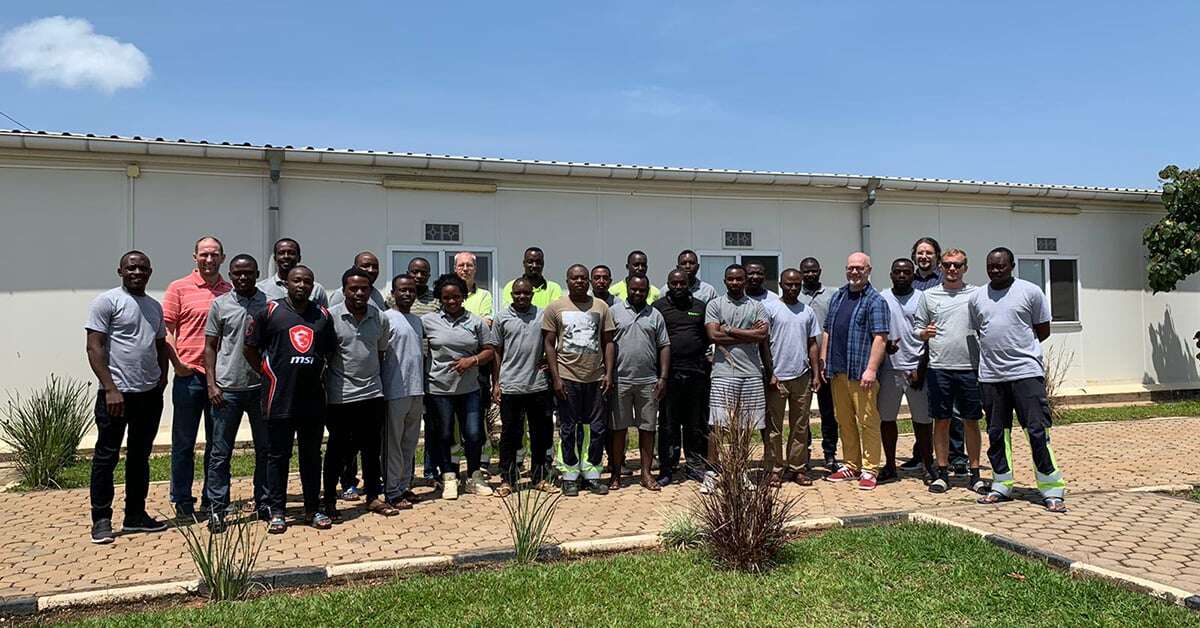The Finnish energy company Fortum has power plants around the world, and as an international organization, recognized the growing need for consistency in modes of thinking and communicating. Fortum wanted to establish a culture where regular employees and managers could comfortably and confidently communicate with each other directly, and Saranen’s communication skills training equipped Fortum with the concrete, much-needed tools to achieve this.
Would you like to read this in Finnish? Finnish version is available here!
Fortum wanted to develop interpersonal communication skills among personnel
In 2019, General Manager Mikko Päivärinta concluded that Fortum needed to ensure its employees around the world approach matters with a mindset that is more or less the same across the organization. Fortum’s principles of open leadership and its company values would be the foundation, and Päivärinta envisioned communication skills training as key to achieving this. The idea was timely, as Fortum had recently expanded their operations to new sites in locations such as Rwanda and the United Kingdom, and the new personnel were still unfamiliar with their coworkers.
Päivärinta describes the line of thought at the start of the project:
“I believe Fortum’s greatest strength, even on the global stage, has always been our equitable management style. In 2019, we had expanded into new regions and we wanted to create a training program focused on communication. We felt that the subject would be relevant to all our employees, and it would strengthen interpersonal communication and equality.”
Next, Päivärinta contacted Saranen to help plan the program. Experts Sami Kohonen and Jarkko Sipilä were more than ready to take on the challenge. At the time, Sipilä was working at Saranen full-time and took responsibility for project planning. Kohonen was to join the project at the implementation phase, taking on the role of project lead.
Sipilä remembers the start of the project as inspiring:
“This was an extremely interesting project. We spent a lot of time with Fortum, discussing their wishes and aims for the training program. Through those conversations, we identified Fortum’s needs and started planning the implementation of the program.”
Planning and implementation were done in close collaboration
The planning sessions with Fortum and background work progressed quickly, and soon it was time to start booking flights — the training program was ready to go. However, the timing was unlucky. COVID-19 began spreading across the world, and there was no choice but to delay the program. At first, the plan was pushed back by a few weeks, then a few months, and eventually put on hold indefinitely.
A couple of years later, when the pandemic restrictions were relaxed, the training program could finally be implemented. In March 2022, Mikko Päivärinta and a few of his coworkers from Fortum, as well as Kohonen and Sipilä from Saranen set out on the global tour to put the plan in motion. During the pandemic, Sipilä had branched out and started his own company. Nonetheless, he packed his bags and joined the team so that the project could be executed according to the original plan.
The first training events were organized in Espoo, Finland. The Espoo sessions served as a pilot to create the blueprint for all of the training events. Next on the itinerary were Scotland and England, and finally Rwanda would end the tour. Approximately 150 Fortum personnel took part in the training, with sessions organized into groups of 10 to 15 people, and each group completing a two-day program.
Feedback from the training was decidedly positive
As the training program was launched, Mikko Päivärinta was surprised, in a good way:
“Naturally, we all had some expectations about how the program would pan out in different locations. But when all was said and done, we were positively surprised at how smoothly everything went and how well the program was received.”
In addition to lectures and speeches, the training sessions included practical exercises that gave personnel the chance to experiment with their skills in various communication scenarios. Päivärinta mentioned that throughout the training he was particularly impressed by Sipilä and Kohonen’s professional chemistry and how well they co-delivered.
“Sami and Jarkko were very good at breaking the ice in the room and getting everyone engaged. You could really feel that people were excited to participate. Over the course of the two-day programs, the communications skills of the participants really took leaps forward. The practical exercises yielded great results. And, importantly, the personnel at the power plants genuinely understood what we were aiming to achieve with the program,” Päivärinta says.
He believes that one key factor fueling the program’s success was management participation. The facilitators always made sure the managers were evenly distributed among the smaller groups. Engagement and participation, regardless of job title or profile, boosted mutual trust among the participants. Project Manager Sami Kohonen, who was one of the trainers, took note of how people found common ground:
“It was very interesting to see how communication skills training resonated with everyone, regardless of geographical and cultural differences, as well as job titles and responsibilities. The groups were very diverse, yet the participants found they were working on ideas and challenges that were relevant to all.”
Communication skills training is for everyone
Fortum’s General Manager Mikko Päivärinta is extremely satisfied with the training program and warmly recommends it to other companies:
“It’s a fundamentally sound way of improving communication skills within your work community. Regardless of what your team members do for their work, it’s important to get everyone involved. Engaging them efficiently ensures that everyone finds the experience enjoyable, and even those who normally remain silent become encouraged to share their insight. Not having to worry about how your coworkers might react to your input improves the psychological safety of the workplace.”
Interested in the power of communication skills training? Learn more about our upskilling services and get in touch with our team members – their details are available on the Contact page. We would be delighted to help you and your organization!



